From ‘Black Beauty’ To ‘Wild Beauty’: Director Ashley Avis’ Equine Activism Comes Full Circle In Her Oscar-Contending Documentary
- Oops!Something went wrong.Please try again later.
- Oops!Something went wrong.Please try again later.

As Mick Jagger repeatedly declares in a famous 1971 Rolling Stones song, “Wild horses couldn’t drag me away.” And for filmmaker Ashley Avis, she could not be dragged away from chronicling the plight of wild horses in her award-winning documentary Wild Beauty: Mustang Spirit of the West.
It’s an issue for which awareness is rapidly growing — because of her documentary, the newly created nonprofit Wild Beauty Foundation, and a nationwide effort to get Congress to pass legislation to save wild horses and burros.
More from Deadline
The film graphically illustrates how the beautiful animals are callously rounded up by contractors hired by the Bureau of Land Management to cull them from grazing on federal lands in a host of Western states including Colorado, Nevada, Utah, Arizona and Wyoming.
Avis and her team, including producing partner and husband Edward Winters, her brother Richard Avis, their small camera team and sometimes even her parents worked on the documentary for five years, self-raising $500,000 for its production.
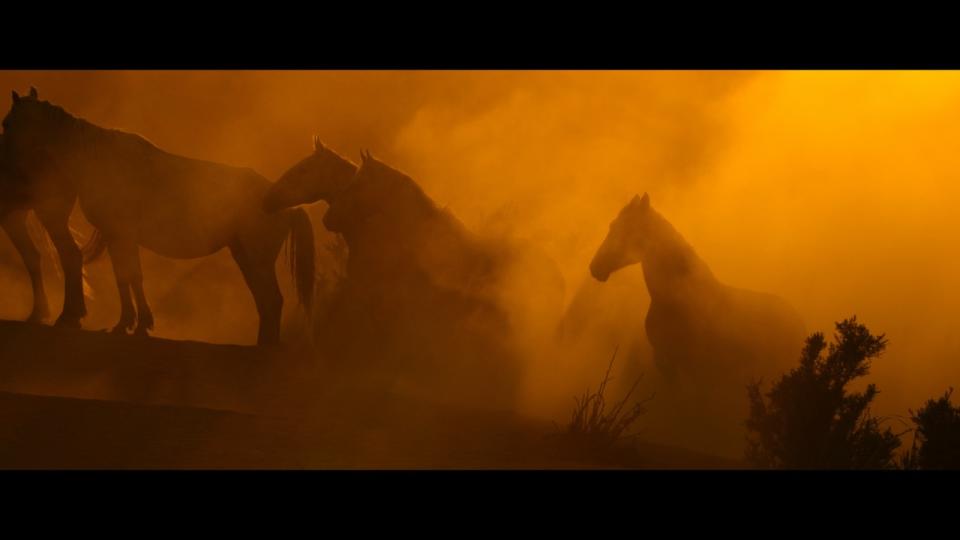
They traversed more than 20,000 miles across 13 states in often remote, mountainous areas to document the story of how wild horses have been made the scapegoat – blamed for environmentally endangering lands that are actually damaged as a result of overgrazing by cattle and sheep.
For Avis, the film has been a labor of love. The seeds were planted as Avis grew up with a deep fondness for horses and the inspiration of equine-themed literature including Anna Sewell’s Black Beauty, a classic written in 1877, and Walter Farley’s novel The Black Stallion, first published in 1941.
It all came full-circle in 2017, when Avis was brought on board to write, direct and ultimately edit the feature film Black Beauty starring Kate Winslet and Mackenzie Foy.
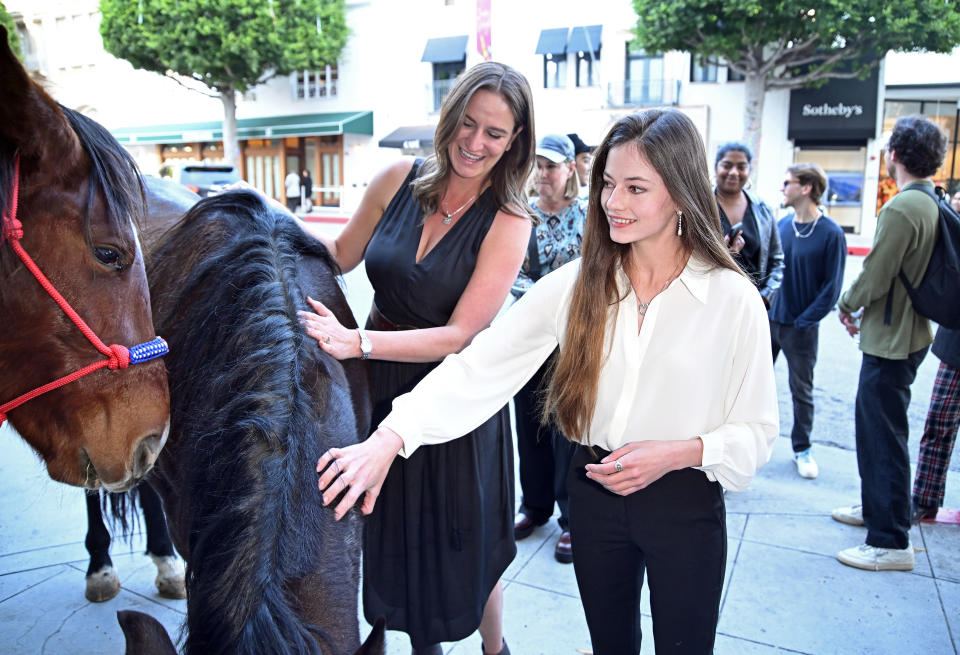
“In our modern day reimagining of Black Beauty for audiences of today, I wanted to find a parallel to give a voice to the horses of our time. That is when I came across the plight of wild horses — and I was shocked that I didn’t know this was happening in our country,” Avis explains about the origins of her documentary. It was released last fall and has played at 30 film festivals and is available on Prime Video, iTunes and other major on demand platforms.
Soon, Avis and her husband raised initial financing to go out on the road in Utah, Wyoming, and Nevada.
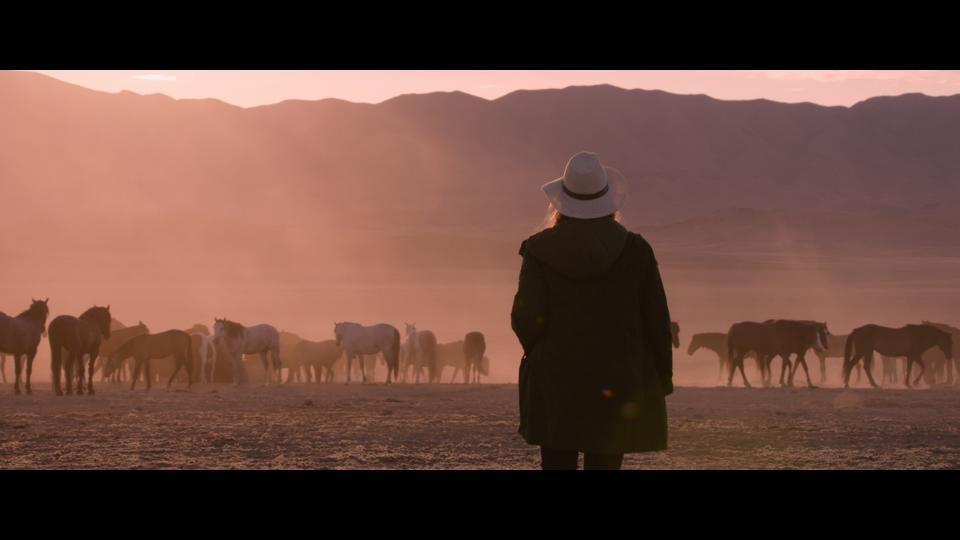
“We filmed wild horses and their families free on the range, stunning images of stallions battling for dominance and also these astounding quiet moments, where those same brave stallions became deeply gentle and delicate— standing over their foals (baby horses) as the little ones slept in the sun,” Avis recalls. “Some days when we would hike out to find them, we would have hundreds of horses surrounding us, breathing gently, nickering softly — the sky would look flecked with gold. It truly was magic, and inspired the use of the Henry David Thoreau quote in the film: ‘We need the tonic of wildness.’ I wish for every person, that they could go out and experience what we did.”
But ugliness soon crept into these idyllic images as the crew witnessed hordes of beautiful horses being rounded up by low-flying helicopters and herded into holding pens. Some of the horses were injured and even killed in the melees.
The federal government maintains the roundups are necessary under the Bureau of Land Management’s Wild Horse and Burro Program. Its mandate is to manage and protect the four-legged inhabitants on public lands on nearly 27 million acres across 10 Western states, and keep the horses, burros and the rangelands healthy.
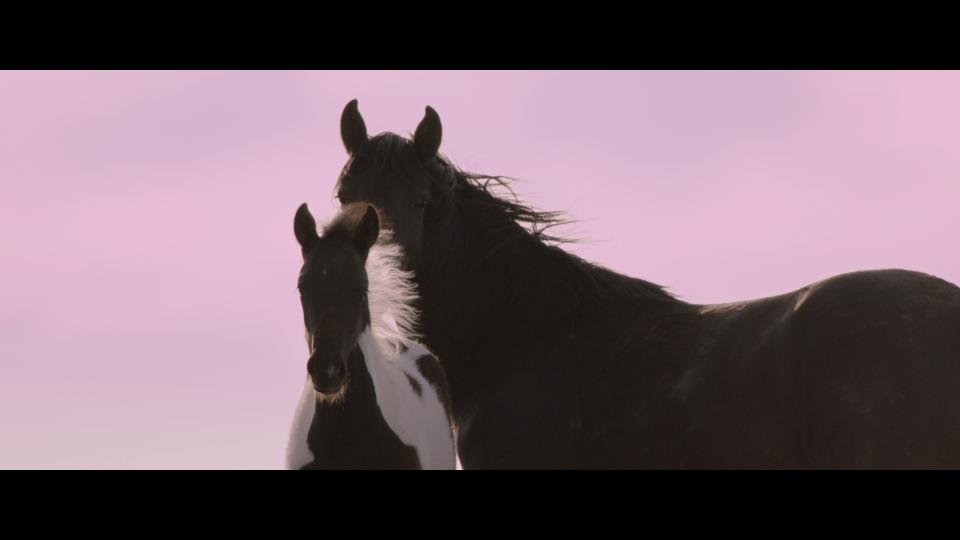
But Avis says the government presents a false narrative of overpopulation.
The BLM often tried to keep the Wild Beauty crew and journalists from the Associated Press and local news outlets from photographing or filming the holding pens. After the round-ups, the horses were either kept in crowded, confined conditions or sent out for auction, an outcome that often meant death for them as they were shipped to Mexico or Canada to be slaughtered for their meat. (The government prefers to emphasize success stories, like finding new homes for the animals. This year alone, it says more than 8,000 horses were adopted).
During the roundups, the horses are stampeded for miles by the helicopters, often in extreme heat or dangerously cold weather.
“Wild horses, right now in our country, are being eradicated in the most inhumane and cruel way. It’s preposterous to me that these roundups are even legal, and the problem again is that people just do not know,” says Avis. “Horses are highly intelligent and deeply bonded with their families, and they break their legs and necks trying to escape, or get back to one another. Day-old foals are trampled, or literally run their hooves off. In a word, it is horrifying.”
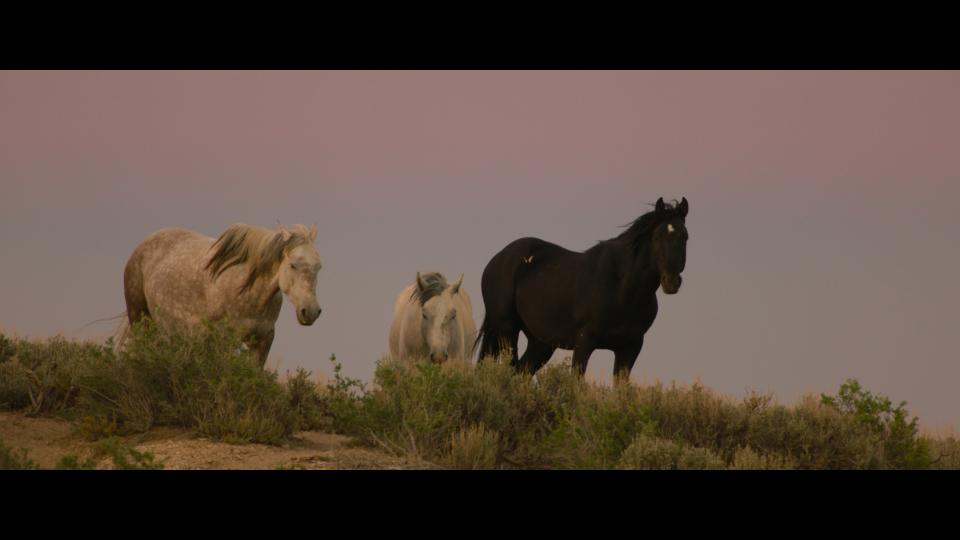
The helicopters themselves are terrifying to the herds of horses. By Congressional act, choppers have been allowed to round up horses since 1971. Previously, wild horses were rounded up by private parties like ranchers for saddle stock and to sell to the pet food industry. Either vehicles or small planes were used for these purposes until they were banned in 1958 with passage of the Wild Horse Annie Act.
In the film, viewers see Avis and her crew trace the journeys of families of wild horses, noting their familial relations. The filmmakers gave them names like Moondrinker, Stargazer and Suncatcher. Norman, Rowan and Rudy were part of a group the team called “the three amigos.” They enjoyed filming the Pearlino Sisters galloping through wild country.
And then there was the legendary white stallion, Old Man, with a beautiful long blonde mane, who would sometimes materialize and then disappear as the sun set.
Wild horses evolved in North America 55 million years ago, and the Lakota and other Indigenous peoples state they always had the horse, contracting BLM claims that the animals disappeared over 10,000 years ago and were only reintroduced by Spanish conquistadors.
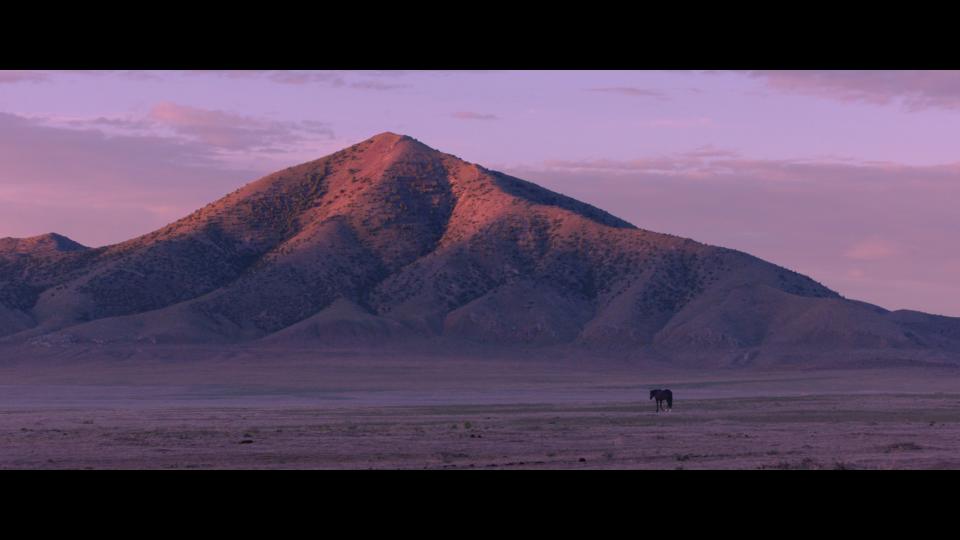
“Dr. Yvette Running Horse Collin, Ph.D was tasked by several tribal nations to prove the wild horse never died out during the Ice Age, which if she is successful would be massively disruptive to the cattle industry, because wild horses would finally be protected as they should be,” says Avis, who also lauded other experts who appear in Wild Beauty.
“Biologist Erik Molvar is the executive director of Western Watersheds Project, Kimerlee Curyl is a wild horse photographer, and Scott Beckstead is an attorney— one of the leading wild horse experts in the world. It’s a great team.”
Wild Beauty was nominated for the Critics Choice Documentary Awards in November and is in the conversation as a top contender for Best Feature Documentary at the Academy Awards. It’s a highly competitive field — 167 films are vying to be named to the shortlist of 15 documentaries for the Oscars, which will be announced December 21.
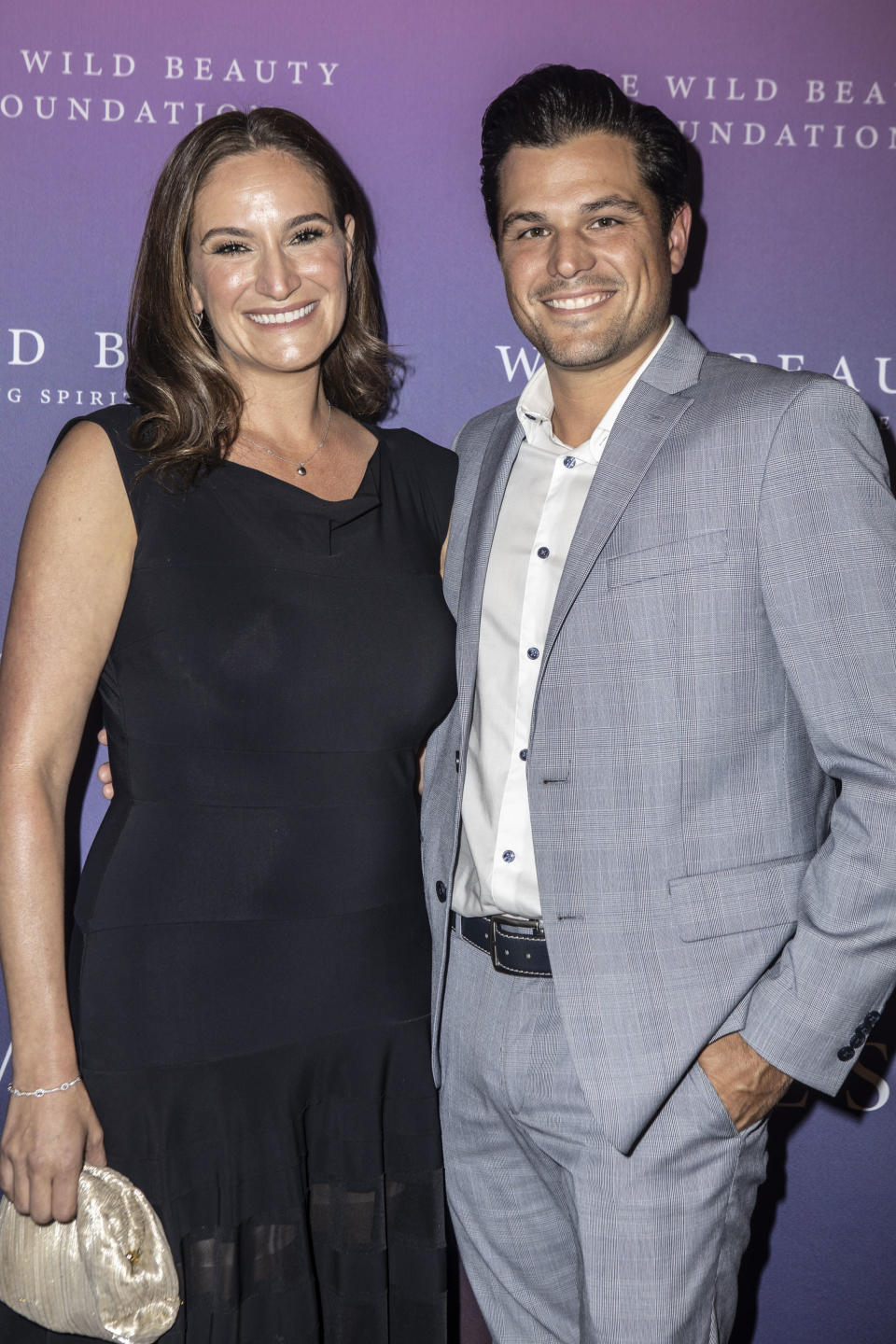
Regardless of the outcome, Avis has her next moves planned, including going back to Washington D.C. to screen the film at the Capitol for members of Congress. She’s urging Representatives to pass H.R. 3656, the Wild Horse and Burro Protection Act, which would ban using helicopters in roundups.
As noted in the film, one way of spreading the word is by using the hashtag #istandwithwildhorses on social media. Avis has also created curriculum for schoolchildren and traveled around the country speaking in classrooms to get them involved writing letters to Congress, a tactic which has already proven to be effective.
“I’ve been asked why I chose to do this, given there is so much going on in the word,” Avis says. “I think that we all have our corner of the planet we are passionate about fighting for, and this is mine. If we all picked a corner, and fought for it, I think the world would be a much better place.”
Best of Deadline
2023 Premiere Dates For New & Returning Series On Broadcast, Cable & Streaming
2023-24 Awards Season Calendar - Dates For Oscars, Emmys, Grammys, Tonys, Guilds & More
Sign up for Deadline's Newsletter. For the latest news, follow us on Facebook, Twitter, and Instagram.

